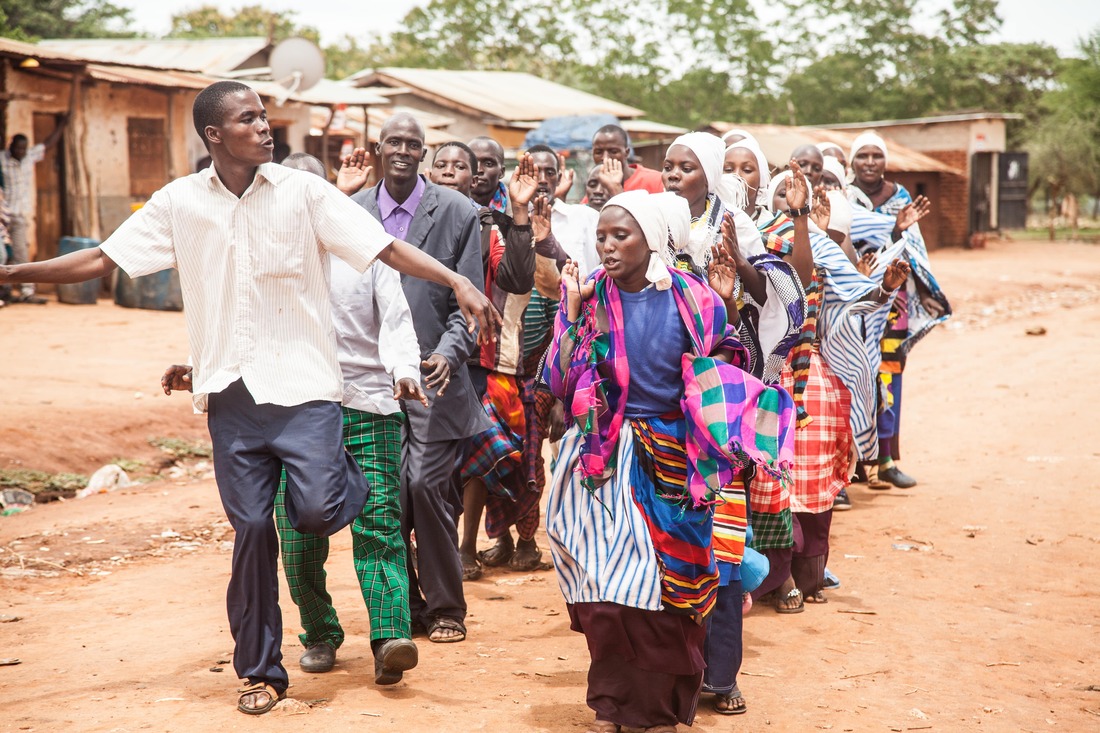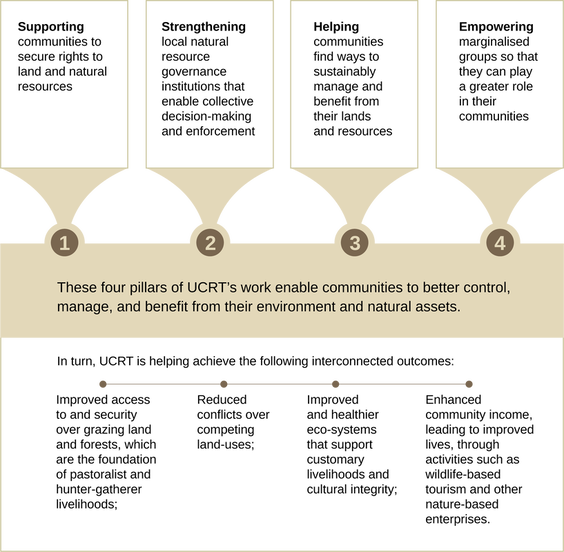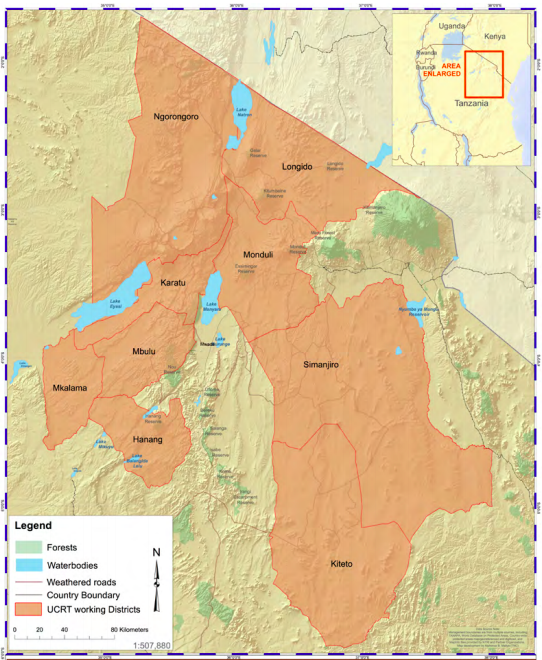About UCRTPastoralist, agro-pastoralist and hunter-gatherer communities have traditionally occupied the semiarid and arid areas of northern Tanzania, where they have managed the land sustainably, supporting both themselves and the wildlife that live there. In these areas the availability of the essential services, such as water, healthcare and education, is limited. Threats of land alienation and increasing resource degradation add to the insecurity of these natural resource dependent livelihood systems. Many members of these communities require the skills, knowledge and self-confidence to take part in decision-making processes over land and natural resource access, use and management.
|
Our Approach
UCRT is a non-profit environmental and social justice organisation that empowers marginalized indigenous groups to secure rights to their natural resources and land in order to improve their livelihoods. UCRT believes that empowering these communities is a fundamental step towards a just and sustainable society. It achieves this by:
VisionStrengthened livelihoods and social justice for pastoralist, hunter-gatherer, and agro-pastoralist communities through security over land and natural resources and sustainable community based natural resource management.
|
Mission
To strengthen community capacity to improve their livelihoods, to secure rights to land and natural resources, and to sustainably manage them.
|
Where we workUCRT works across 120 villages in various districts of northern Tanzania. These largely rangeland areas support pastoralists, agro-pastoralists, and hunter-gatherers who are all being affected by rapid environmental change. Working in solidarity with these groups, UCRT’s geographic structure enables it to ground itself in local contexts while maintaining a broader view of issues that permeate northern Tanzania. Working areas include: 1. Simanjiro 2. Longido 3. Monduli 4. Kiteto 5. Hanang’ 6. Yaeda Valley & Lake Eyasi (one area within parts of Mbulu, Karatu, and Mkalama Districts) 7. Ngorongoro |
UCRT's History & Context
Late 1990s-2004 |
|
Facilitated land-use and natural resource management at local levels through the development of village land-use plans, associated village by-laws, and capacity building of local institutions.
2005-2010 |
|
Expanded upon its land-use planning and by-laws support to also helping communities to secure their village lands and resources by obtaining Certificates of Village Land (CVL) that document and formalise the boundaries of village lands. Assisted communities to gain benefits from eco-tourism and started to strengthen community based leadership structures. In 2008, in recognition of contributions to conservation and development in Tanzania, the United Nations Development Programme selected UCRT to receive the prestigious Equator Prize.
2011-Present
|
|
Strengthened tenure arrangements beyond CVLs through communal Certificates of Customary Right of Occupancy (CCROs) that institutionalise collective tenure arrangements for pastoralists and hunter-gatherers. Established Women’s Rights and Leadership Forums (WRLFs) to promote women’s rights to own, and make decisions over, land and property. In 2016, former UCRT Executive Director Edward Loure won the Goldman Environmental Prize for Africa for UCRT’s historic work in establishing CCROs as an effective tool for strengthening land tenure security for both pastoralists and hunter-gatherer communities in Tanzania. The Goldman Prize is the world's largest award honouring grassroots environmental activists and this was the first time in its history that the prize was awarded to a Tanzanian.
Copyright 2020 Ujamaa Community Resource Team - All Rights Reserved



